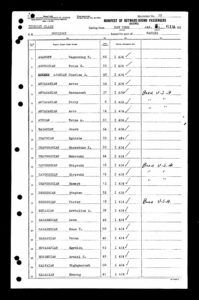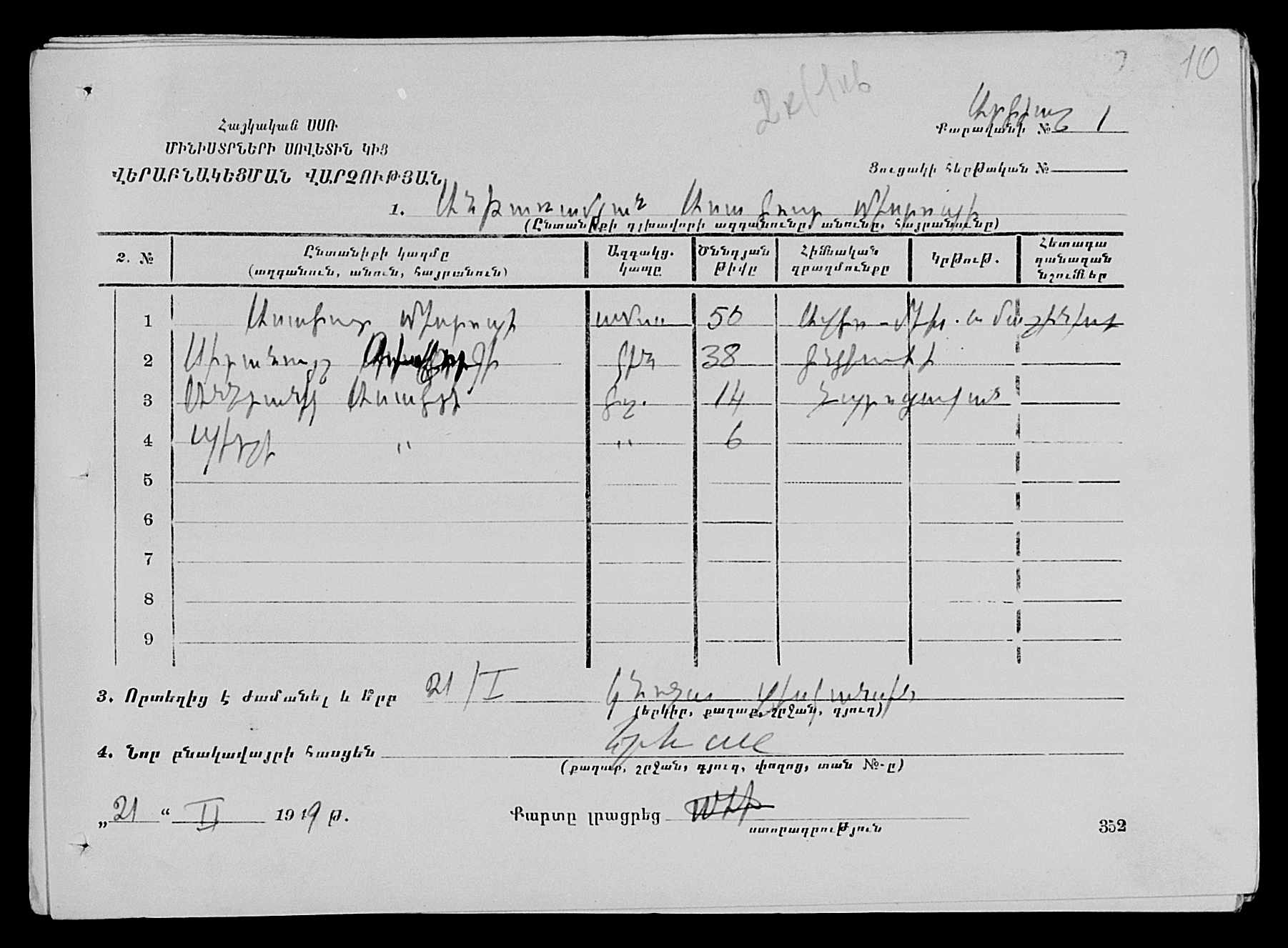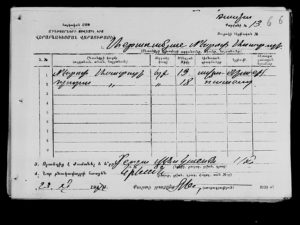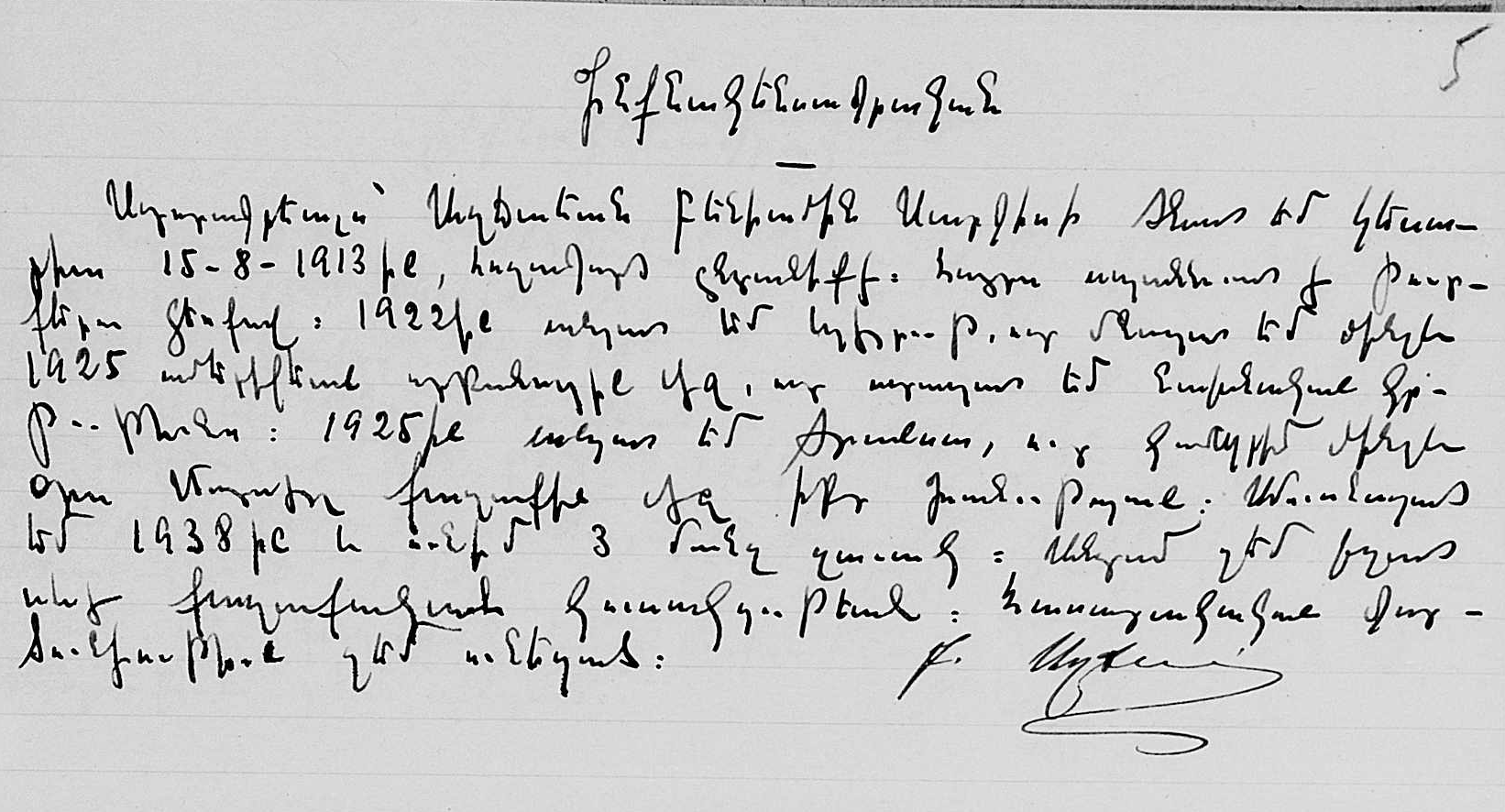This article is part of a continuing series documenting the available records for research into one’s Armenian family roots. Part I in the series supplied a historical background on the Armenian genealogy movement as well as specific records available for Syria. In Part 2, records from Lebanon and Israel were detailed. Part 3 covered the records of Greece and Jordan. Southeast Asia and Serbia were covered in Part 4. The available information from the Republic of Turkey was explored in Part 5.
Egypt
The Armenian community of Egypt dates back over 1000 years, though the available records are for more recent periods. In 1906/7, an Armenian census was conducted for Cairo. Over 4000 Armenians are recorded in the census, approximately 25% of them having been born in Egypt.

Through a volunteer effort by members of the Armenian Genealogy Facebook group this census has been subscribed and submitted for inclusion on FamilySearch.org. The hope is this will be the first of many such endeavors. As the database of transcribed records grows, so will the ability to link individuals and families across those records.
The census contains information on the relationship to the head of household, the maiden name for women, occupation, age, birthplace, year of immigration, marital status, citizenship, and residence. The following is a list of the top 10 birthplaces outside of Egypt:
- Constantinople [Istanbul] 1177
- Gesaria [Kayseri] 384
- Arapgir 262
- Evereg [Develi] 129
- Sepasdia [Sivas] 119
- Smyrna [Izmir] 112
- Agn [Kemaliye] 95
- Haleb [Aleppo] 84
- Van 77
- Dikranagerd [Diyarbakir] 49
The Armenian Apostolic church records for Cairo (St. Krikor Lusavorich church) date from only 1893. However, those for Zagazig, Egypt (St. Asdvadzadzin church) begin in 1864 and Armenian Catholic church records can found for even earlier periods. The church records for Alexandria, Egypt are available beginning in the mid-1800’s.
All of these records, as previously stated, can be found at the Family History Library of the Church of Jesus Christ of Latter-day Saints (LDS). They can be accessed most easily at the library in Salt Lake City, Utah.
Armenia
In this series, I will not address the libraries and government archives of the Republic of Armenia which undoubtedly contain valuable information for genealogical research. Instead, I will focus on what has been made available through the LDS Family History Library. Thousands of images are now available freely through FamilySearch.org.

It could take a lifetime to review the tens of thousands of images that are now available online. Soon after the independence of Armenia, Gagik Dumanian led efforts to preserve the genealogically relevant material found in Armenia. The first roll was filmed in September of 1993. The project was completed in 2002.
It would be impossible to detail completely all that is available, but, in general, the recording of sacraments as well as various census and land records can be found. Many of the records, particularly the census and land records, are in Russian.

While the church records date back centuries in some cases, they are identified in different ways within the catalog. A complete index is unavailable and the records are organized in such a way that makes it very difficult to locate any specific individual or family. To truly be useful, the significant work must be undertaken to transcribe the information into a searchable database. Nonetheless, the existence and easy accessibility of these records is a major accomplishment.
One source that has yet to come to light is the original registers from the 1897 Russian Imperial Census. Both the time frame and the geographic area covered make this census important. Completed 20 years prior to upheavals caused by the Genocide and World War I, this census would supply an important link in family histories. In addition, regions such as the Kars Oblast, now part of the Republic of Turkey, were included in the enumeration.
From the perspective of the Diaspora, the records of the late 1940’s repatriation to Soviet Armenia are particularly interesting. Those arriving from the United States, Syria, Lebanon, Greece, Egypt, France, as well as other areas, are well documented.
On Jan. 21, 1949, the S.S. Sobieski set sail from New York City with 162 Armenians on board heading to Soviet Armenia. On the ship were Asadour Antaramian, a native of the town of Peri in the Charsanjak district of Kharpert, his wife and two children. Two of their sons had already left for Armenia on a previous ship sailing from the United States. The record of their departure and arrival can be found as confirmation of the journey.

On a personal note, reviewing the records of those who were scheduled to travel from France included an Aghjayan that was previously unknown to me. Peniamin, son of Sarkis Aghjayan and Isgouhi Satulmushian, was born in Gesaria [Kayseri] on Aug. 15, 1913. The close proximity to the hometown of my Aghjayan clan makes it highly likely that Peniamin was a relative. Confusingly, records seem to indicate that Peniamin became a naturalized citizen of France in 1950, thus implying that he was never able to repatriate. The documents mention him having three sons: Roger, George and Jacques. Their years of birth imply that they could still be alive. Unfortunately, all of my efforts to locate them remain unsuccessful thus far.


I have been searching for my relatives for years. My grandfather is Sivasli antranik Kazaz, my grandma Agavni Parseghian from Aghn. They lived in Uskudar, Istanbul. My maternal grandfather Siren Boujoluian from Adapazar. None came to America. I do have my Sivasli Granddad’s b. Certificate. Thanks for your work.
Are the records mentioned above of the repatriation to Soviet Armenia of the late 1940’s available on line?